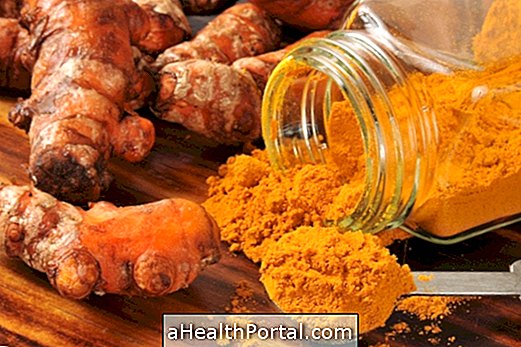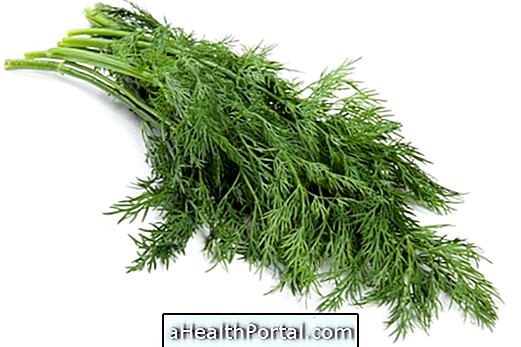Turmeric is a medicinal plant that has a long orange root that is turned into powder and used as spice in several countries, especially in India. This plant can also be known as turmeric, saffron or tumeric.
In addition to being used very often in cooking, turmeric can also be used as a natural remedy to improve gastrointestinal problems, fever, treat colds, and even reduce high cholesterol.
Turmeric is a plant with long, shiny leaves about 60 cm long with orange roots. Its scientific name is Turmeric long and can be bought in natural products stores, manipulating pharmacies and even in some markets for the average price of 10 reais.

For what it serves and benefits
The main properties of turmeric are its anti-inflammatory, antioxidant, antibacterial and digestive action and, therefore, this plant has several benefits for the body, such as:
- Improve digestion;
- Helping in weight loss;
- Combat colds and flu;
- Avoid asthma attacks;
- Detoxify the liver;
- Regulate the intestinal flora;
- Eliminate intestinal worms;
- Treat liver problems;
- Stimulate the immune system;
- Relieve skin inflammations such as eczema, acne or psoriasis.
In addition, turmeric can be used to lower blood cholesterol levels, inhibit clot formation and relieve the symptoms of premenstrual tension.
The active principle of turmeric is curcumin, which has been studied to be used as a gel or ointment to treat skin wounds, such as burns, because it has shown excellent results in scientific studies.
Check out these tips in the following video:

How to use
The most commonly used part of turmeric is the root powder for seasoning foods, however, its leaves can also be used in the preparation of some teas.
- Turmeric Infusion: Place 1 teaspoon of turmeric powder in 150 ml of boiling water and let stand for about 10 to 15 minutes. After kneading, drink up to 3 cups a day at meal intervals;
- Turmeric Gel : Mix one tablespoon of aloe vera with the turmeric powder and apply on the skin inflammations such as psoriasis.
Here's how you can use turmeric in home remedy for rheumatoid arthritis or home remedy for high triglycerides.
Possible side effects
The side effects of turmeric are related to its excessive use, which can cause irritation in the stomach and nausea.
Who should not use
Although it has several health benefits turmeric is contraindicated in patients who are taking anticoagulant drugs and with obstruction of the biliary tract due to the stone in the gallbladder. Turmeric in pregnancy or lactation should only be used under medical supervision.























